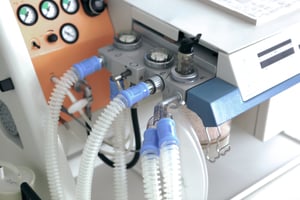In January 2025, the FDA released a draft guidance titled Obesity and Overweight: Developing Drugs...
FDA’s Role in Quality Culture and Drug Availability
FDA’s Center for Drug Evaluation and Research (CDER) recently released a white paper, marking a significant step in pharmaceutical regulatory strategy with the establishment of a new Quality Management Maturity (QMM) program. QMM is a voluntary program to promote mature quality management systems (QMS) that go beyond minimum compliance, with the ultimate goal of reducing drug shortages and improving reliability of supply, a key aspect of regulatory strategy in the pharmaceutical industry.
The FDA Drug Shortage Task Force identified a key issue in drug supply chain management: the market's failure to recognize and reward manufacturers with robust QMS, quality practices and culture. 62% of drug shortages between 2013-2017 were caused by manufacturing or quality issues, underscoring the need for enhanced regulatory compliance. Quality problems continue to be the leading cause of supply disruptions.
Goals of the QMM program are to:
- Foster a strong quality culture mindset at drug manufacturing establishments, pivotal to effective regulatory strategy.
- Recognize establishments with advanced quality management practices and encourage continual improvement.
- Identify areas where practices can be enhanced and provide growth opportunities.
- Minimize drug supply disruption risks to ensure availability, a critical component of pharmaceutical regulatory strategy.
CDER is developing a standardized assessment protocol and rubric to evaluate how effectively manufacturers monitor and manage quality, a game-changer in FDA regulatory strategy. The prototype assessment program will begin testing in 2024. The QMM assessment will cover five practice areas: 1) Management Commitment to Quality, 2) Business Continuity, 3) Advanced Pharmaceutical Quality System, 4) Technical Excellence, and 5) Employee Engagement and Empowerment. Unlike typical manufacturing quality audits, assessors will review policies, procedures, and culture rather than product quality or compliance with cGMP, aligning with FDA regulatory guidelines.
FDA hopes to facilitate open conversations and provide meaningful recommendations to drive continual improvement, not take regulatory actions. Participation in QMM is voluntary and assessments are not inspections. The maturity score is independent of company size, products, etc. FDA wants to continue highlighting the long-term benefits derived from improved quality culture, a cornerstone of pharmaceutical regulatory strategy.
Medpoint, with its expertise in regulatory strategy consulting services, is poised to ensure your operations not only meet but excel in aligning with regulatory standards. To discuss how we can assist in optimizing your regulatory compliance strategy, reach out to set up a call today!

%20Large.jpeg?height=200&name=April%202025%20Blog%20Post%20(3)%20Large.jpeg)

